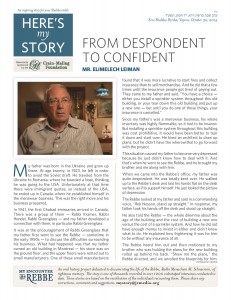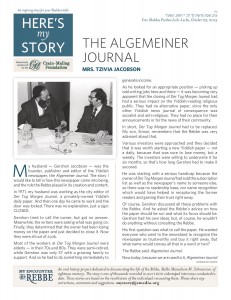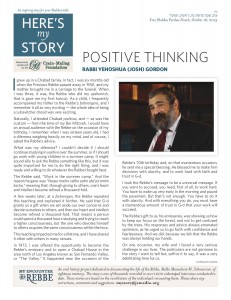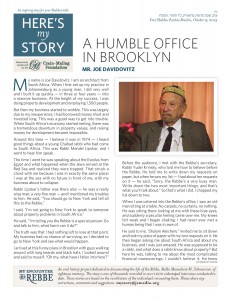From Despondent to Confident
My father was born in the Ukraine and grew up there. At age twenty, in 1923, he left in order to avoid the Soviet draft. He traveled from the Ukraine to Romania, where he boarded a boat, thinking he was going to the USA. Unfortunately at that time there were immigrant quotas, so instead of the USA, he ended up in Canada, where he established himself in the menswear business. This was the right move and his business prospered.
In 1945, the first Chabad emissaries arrived in Canada. There was a group of them – Rabbi Kramer, Rabbi Hendel, Rabbi Greenglass – and my father developed a connection with them, in particular Rabbi Greenglass.
It was at the encouragement of Rabbi Greenglass that my father first went to see the Rebbe – sometime in the early 1950s – to discuss the difficulties surrounding his business. What had happened was that my father owned an old building in Montreal – his store was on the ground floor, and the upper floors were rented out to small manufacturers. One of these small manufacturers found that it was more lucrative to start fires and collect insurance than to sell merchandise. And he did that a few times until the insurance people got tired of paying out. They came to my father and said, “You have a choice – either you install a sprinkler system throughout this old building, or your tear down this old building and put up a new one – but until you do one of those things, your insurance is cancelled.”
Since my father’s was a menswear business, his whole inventory was highly flammable, so it had to be insured. But installing a sprinkler system throughout this building was cost prohibitive. It would have been better to tear it down and start over. He hired an architect to draw up plans, but he didn’t have the wherewithal to go forward with the project. (more…)








